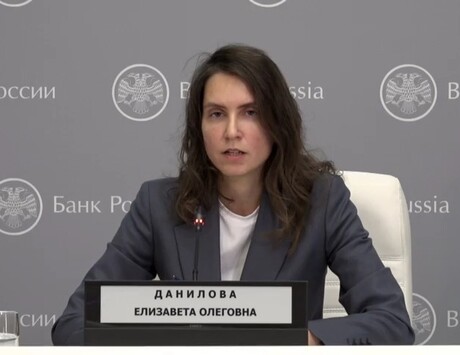A week ago, a burly Russian tycoon named Alexander Lebedev made the news after he punched a burlier Russian tycoon, Sergei Polonsky, in the face. All that right on a national TV show in front of an audience of millions. Some people say Mr. Polonsky was asking for it. They could be right. In 2008, Mr. Polonsky, then one of Europe's youngest billionaires, proclaimed that anyone who failed to make a billion dollars was a loser. One can understand the desire to punch him in the face, but Mr. Polonsky's reaction was full of indignation and chagrin. He immediately complained to the Holy Trinity of the Russian power system: Putin, Medvedev and Patriarch, after which he posted the photos of his bruised face and torn jeans on Twitter.
In recent years, the news has been filled with the amusing doings of Russian oligarchs. Yes, other celebrities provide news content, too. A movie star can check into a rehab, or shoplift. An occasional politician will show the contours of his genitals or get caught with a prostitute with his socks on. That is pretty entertaining, but so unspectacular. For spectacular, we have to rely on Russian oligarchs.
Russian tycoon Suleiman Kerimov, #118 on Forbes billionaires list, set on fire his million dollar Ferrari Enzo, after he crashed it into a tree. True indestructible Russian tycoon that he is, Kerimov survived the crash.
Another Russian tycoon, Roman Abramovich, #53, failed to find a parking space in Antibes for his 530-foot yacht. Apparently the only large parking space was already taken by the yacht of Saudi Prince Al-Waleed Bin Talal. To add insult to injury, the Prince's yacht measures only 265 feet, which must have seemed offensively small to Mr. Abramovich.
Russian tycoon Mikhail Prokhorov, #32, got arrested in Courchevel, France with a group of prostitutes that he had hired for a party. (He was later released without charges.)
It's hard to imagine that less than 25 years ago, these people led perfectly ordinary lives behind the Iron Curtain, ate their kasha for breakfast, stood in lines to buy salami, attended young pioneer meetings and lectures on Marxist economics.
And now they have taken their places among the richest and most powerful people in the world (those lectures on Marxist economics must have been useful after all.) They also surpassed the richest and most powerful in their striving for things that are larger than life and in celebrating their wealth with reckless abandon.
One explanation for this phenomenon is that Russian oligarchs find themselves in a rather peculiar position. The original group of oligarchs that included Mr. Abramovich came into their enormous wealth seemingly overnight as a result of a political rather than business deals, when the enormous natural resources of Russia got divided between a small group of people. They treat their wealth as something not quite real, and considering the Russian political situation, not that secure. Just look what happened to Khodorkovsky. Russian oligarchs are trying to make the most of their wealth while it's there, and while they are free to use it.
Mr. Prokhorov, however, offers another explanation. He alludes to the famous mysteriousness of the Russian soul. After his Courchevel scandal, Mr. Prokhorov was outraged at the French authorities. He was just trying to throw a good party! Mr. Prokhorov later complained in an interview that the French were hypocrites, that they claimed to admire the great Russian culture (Tolstoy, Dostoevsky, Dyagilev and such) but refused to view the lifestyle of contemporary Russians (he meant contemporary tycoons like him) as part of that great culture, or as a manifestation of that "mysterious Russian soul."
I'm quite taken by him viewing the lifestyle of contemporary Russian oligarchs as a continuation of the great Russian culture of the past. We Russians have lost a lot. Tolstoy, Dostoevsky and Dyagilev are gone. We've lost the Cold War. Gone are the countries of the former Soviet bloc long with former Soviet republics. Where are our science and space programs? What happened to the fear and respect of the world? But we still have our Russian oligarchs keeping the legend of the mysterious Russian soul alive.
Lara Vapnyar emigrated from Russia to New York in 1994. She is the author of two short-story collections: "Broccoli" and "There Are Jews in My House," and a novel, "Memoirs of a Muse." Her stories and essays have appeared in the New Yorker, New York Times, and Harper's. She lives on Staten Island with her family, and teaches creative writing at NYU.



